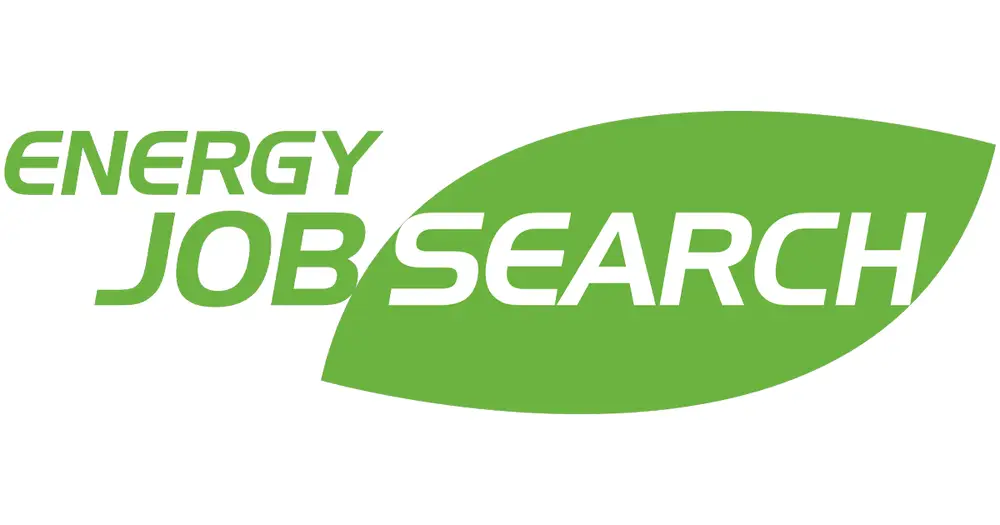The energy market in the U.S. is shifting and evolving as changing policy dictates it. A return to pro-fossil fuel leadership means oil, gas, and coal projects are gaining ground while federal support of renewables slows down.
What does this mean for energy workers? Well, if you’re an entry-level jobseeker, this change reshapes where jobs are growing and what skills are in demand.
Oil, gas, and coal are now back in focus as sectors to watch.
As permitting speeds up, regulations are easing, and traditional energy companies are responding with expansion plans. Where there was a surge in clean energy jobs a few years ago, it has been replaced with a similar one in traditional energy.
The energy landscape is different, too; it favors extraction, construction, transport, and field support. Of course, states will respond differently to these changes, so know where growth is happening and what local policies will affect your job search.
If you’re starting, learning how policy drives hiring can give you an edge when you’re applying for jobs. This guide outlines how energy jobs are moving, which skills transfer across sectors, and how to stay ready as the market shifts.
Policy Reversals and Rollbacks
The re-election of Donald Trump brings a sharp shift in energy policy. His administration has begun to reverse the rules put into place in the last four years, which include limits on emissions, public land use, and project permitting.
This shift has allowed for the removal of barriers for traditional energy sources such as oil, gas, and coal. Fossil-fuel projects are being fast-tracked, and traditional energy jobs are being promoted over clean energy roles.
With federal backing dropping, renewable projects may inevitably slow down. Fewer subsidies may be available for wind and solar developers, and projects already funded may encounter longer approval timelines.
If you were hoping to enter wind or solar, the change in priorities could affect you. Fewer entry points mean fewer opportunities in those sectors, at least at the federal level. Conversely, fossil fuel companies now have a clearer path to expand.
This change affects who’s hiring, where, and for what roles. As an entry-level candidate, you should track policy updates; they move fast and shape where job growth happens next.
Fossil Fuel Momentum
While renewable energy was growing, Trump’s administration and Republicans in Congress now back U.S. oil and gas. They aim to lift production by cutting regulatory hurdles and pushing for more drilling. That includes opening federal lands and offshore areas for new projects.
This approach could trigger hiring surges in extraction, transport, and site development. Texas, North Dakota, and New Mexico oilfields may see the most movement. Entry-level candidates who can relocate or work long shifts will have an edge.
Field crews, rig operators, welders, and CDL drivers will likely see more demand. Certifications like OSHA’s Hazardous Waste and Emergency Response standard (HAZWOPER) or OSHA 10/30 will help. Employers want people who can get to work fast and stay compliant on-site.
More production means more moving parts – literally. Equipment operators, logistics coordinators, and safety staff will be needed to keep projects on track. Keep an eye on companies expanding into federal lease areas; they often hire before the drill hits the ground.
Impact on Renewables
The boost given to oil and gas may come at the expense of renewable energy sources. As federal momentum has shifted away from solar, wind, and electric vehicle projects, how does this impact renewable energy?
Tax credits relating to renewables are now under review, and fewer incentives exist for businesses and consumers.
The lengthened timeline has led some clean energy companies to slow hiring or pause expansions. Entry-level roles in installation, maintenance, and support may become some of the hardest to land, especially in states that rely on federal funding.
In response, companies might tighten budgets or reduce training programs.
That said, places like California, New York, and Colorado will still have state and local programs to support clean energy. If you are a jobseeker in one of these three states, you can focus on regional opportunities to build technical skills like PV installation or battery systems to stay competitive.
Infrastructure and Permitting Changes
The Trump administration also wants fewer delays in building energy infrastructure. That includes faster pipeline permits, refineries, export terminals, and grid expansions tied to fossil fuels.
On a positive note, energy firms and subcontractors may see new work sooner than expected. It should create short-term openings in surveying, heavy equipment operation, site prep, and safety compliance.
Project timelines in the oil and gas industry with fewer hurdles will also move faster, meaning crews must be ready on short notice. If you are a worker who can handle physical labor, follow regulations, and stay mobile, you may be in demand.
Agencies will likely favor large-scale projects that show immediate output, so watch where those investments go.
Where the Jobs Are Moving
Energy hiring trends tend to follow federal signals. When leadership shifts and adjusts their priorities, so do the companies that benefit. Trump’s administration favors fossil fuel development, which reshapes both public and private sector job movement.
Watch how agencies shift because their shift in priorities and how their company responds can affect how you apply for work.
Hiring will pick up in areas aligned with new regulations, especially where oil and gas development ramps up.
Entry-level roles tied to production, site work, and compliance will likely come first.
Federal Hiring Trends
Federal agencies are adjusting their priorities. Departments like the EPA and DOE are shifting focus from climate planning to fossil fuel oversight, production monitoring, and permitting.
Clean energy research will be shifted in favor of research in areas tied to drilling approvals, pipeline inspections, and resource management. Contract roles tied to land use and environmental compliance may also reappear.
If you’re considering a government-led role, you should focus on positions tied to field work, regulatory enforcement, and project permitting. Roles in Washington may shrink, while regional offices and field stations may see more action.
Private Sector Job Movement
If you’re seeking a job with a private energy company, know they are adjusting their hiring plans to match the federal direction.
Oil and gas firms expect fewer delays and more access to land, so they’re preparing to scale up. What that means for you is more jobs tied to site prep, drilling, transport, and compliance.
Clean energy companies, on the other hand, may slow hiring or shift focus to state-funded projects. Some will downsize federal-facing teams and redirect resources to regions with strong local support.
If you’re an entry-level applicant, stay ahead by tracking company press releases, earnings calls, and project announcements. Firms tied to pipeline builds, export terminals, or federal lease areas will likely hire first and fast.
Skills That Move With the Market
Skills you use in a fossil fuel job can carry over to renewable energy roles and vice versa. Entry-level workers who focus on core technical and safety training can stay flexible as the market shifts.
Field Roles
Field roles rely on you having the skills for mechanical repair, electrical systems knowledge, equipment handling, and site prep. Employers are more likely to want to hire you if you know how to follow protocols, work under pressure, and operate in remote or high-risk environments.
Construction Experience
If you have construction experience, then make sure to let new employers know that. The experience you gain from construction work transfers well between sectors.
If you can read site plans, handle tools, and manage physical labor, you’ll find openings in pipeline projects or solar farm builds. CDL drivers can move between fuel transport and equipment handling jobs with little retraining.
Soft Skills
It doesn’t matter which sector you work in, reliability, adaptability, and clear communication will always be skills employers look for. Projects move fast, and crews need people who show up ready to work and follow directions.
Building a mix of hard and soft skills lets you shift between industries as opportunities open and close.
Skills That Will Stay in Demand
If you’re entering the energy field, focus on skills that apply across sectors, especially those that support field operations, safety, and logistics.
Valuable entry-level skills include:
- Certifications and training (such as OSHA 10/30, HAZWOPER training)
- Commercial Driver’s License (CDL)
- Basic welding and mechanical repair
- Electrical systems knowledge (for both fossil and renewable work)
- Blueprint and site plan reading
- First aid and CPR certification
- GIS or mapping software for site planning
- Experience with heavy equipment or forklifts
Most employers in traditional energy value hands-on ability over academic credentials, especially for field and transport roles. Certifications that prove safety awareness or technical skill will also carry weight in applications.
How to Stay Ahead as a Jobseeker
The easiest way for you to stay ahead of the changing energy landscape is by tailoring your applications to match the industry’s needs. Start with showing your readiness for field work, site travel, and regulatory environments.
Other ways you can improve your chances:
- Focus your resume on safety, logistics, and technical training
- Get certified before applying, some employers won’t be willing to train entry-level workers
- Mention your willingness to relocate or work rotational shifts
- Learn how to read basic site plans, safety manuals, and inspection checklists.
- Use job boards that list field roles by location and required skills
Smaller contractors may hire faster than major firms, so reach out early, follow up, and stay available.
Conclusion
Yes, federal energy priorities are shifting fast, but your future as an energy worker can benefit from it.
While clean energy hiring faces more pressure, fossil fuel roles are gaining traction, so it may be time to pivot for now, consult reputable job boards, and focus on transferable skills that can benefit you no matter the sector.
Entry-level workers who stay informed, build practical skills, and move where work grows will have the best shot at getting hired.








